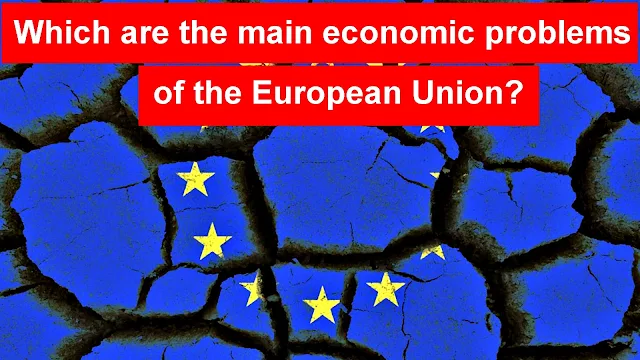Online Financial Advice is a blog where you find the latest news in business, and financial domain. Also from here you will learn good tips about managing your money, and new earning possibilities. Online Financial Advice is your daily source of fresh information that you need to become rich.
Which are the main economic problems of the European Union?
The economic crisis has passed, but the European Union (EU) has several weaknesses that make thwart its development.
Bloc is a conglomerate of various nations. Even if some steps have been taken for a space to become homogeneous (single currency, free movement of goods and people), there are some aspects where the discrepancies are very high (tax policy, labor market laws, government structure and economy).
In addition, the leadership in Brussels has limited powers and Member States are still governed by laws archaic and some divergent cultural and historical prevent cross-border cooperation in certain aspects, writes Katina Stefanova, entrepreneur and consultant, in an editorial published by Forbes.
The gap between countries in Southern Europe and rest of the continent
It shows that the gap between the countries of central continent, led by Germany, and "sisters" in the South - Spain, Portugal and Greece - is still high, and this Close region's economy overall.
Stefanova Katina writes that protectionist laws have made less flexible labor market on the Old Continent to be ineffective. And wages rose in the center of the euro zone, while the periphery situation is exactly the opposite.
In addition, the refugee crisis is still a concern in economically and culturally. German Chancellor Angela Merkel says that immigrants could be a cheap labor and could be an answer to Europe's aging population, but the plan does not seem viable in the short term.
That's because more than a million refugees should integrate in the communities in which they move. And so it's currently impossible.
According to him, another problem is that the EU lacks a common army, as in the US, and this means a loss of 1% of GDP bloc.
In other news, in some cases - such as Germany - there are signs that the economy is overheating. Housing prices in the largest economy in Europe increased by 29% from 2009 to 2014, and in some cities reach up to 46% advance.
The solution to increase cohesion and Europe's economy
Katina Stefanova shows that the key to reducing these problems Europe is the implementation of fiscal policies and structural reforms.
Thus, she recommends increasing property taxes in some areas, especially in France and the UK, especially for luxury apartments and houses in residential areas.
Another option that could be considered by Brussels is deleting or restructure debt in some countries with large outstanding, such as Greece. Needless difference between rich and poor should be reduced by creating jobs.
But all these solutions must be contained in a long-term strategy. If the Marshall Plan to rebuild Europe was needed after World War II, now it needs something similar in other EU countries to recover fully from the crisis.
"The Marshall Plan was implemented in 1948. It has been almost three generations, so it's kinda topped" show source.
Some governments have started to see the need for a coherent fiscal policy. Even if European nations have dropped this "custom" 2014, 2017 it is likely to return to this custom.
